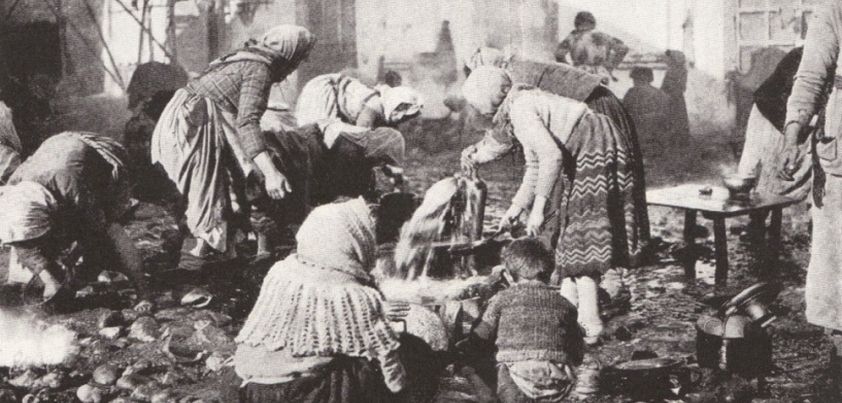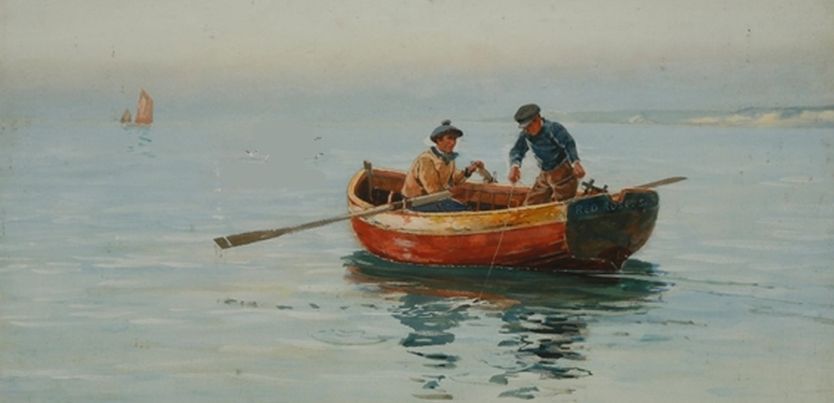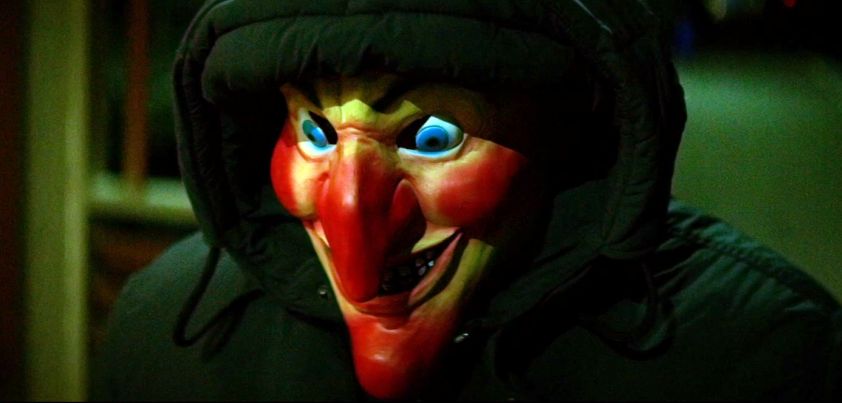 A major theme of this story by Jason Reynolds is dreams vs. reality. Four African-American boys on the way to hang out at one of their homes after a day at the swimming pool try to outdo one another with descriptions of the exotic sandwiches they would like to eat when they get there. What they are served is very different to what they imagined. The sad message of the story is that in later life they are likely to encounter many similar reality checks. Other themes include Brooklyn life, social inequality, friendship, individuality, imagination, disappointment, acceptance. More…
A major theme of this story by Jason Reynolds is dreams vs. reality. Four African-American boys on the way to hang out at one of their homes after a day at the swimming pool try to outdo one another with descriptions of the exotic sandwiches they would like to eat when they get there. What they are served is very different to what they imagined. The sad message of the story is that in later life they are likely to encounter many similar reality checks. Other themes include Brooklyn life, social inequality, friendship, individuality, imagination, disappointment, acceptance. More…
All posts by shortsonline
A Cold Autumn
 In this story by Ivan Bunin, a Russian woman reflects on a cold autumn morning thirty years earlier when she saw her fiancé off to war, never to return. After this, despite moments of happiness, her life spirals downward … she loses her parents and the family estate during the Revolution, ekes out a living in a Moscow market, marries but loses her husband two years later, and toils to raise his nephew’s infant daughter. She struggles on thanks to his commitment to wait for her in the afterlife. Themes include love, death, loss, time, memories, displacement, perseverance.. More…
In this story by Ivan Bunin, a Russian woman reflects on a cold autumn morning thirty years earlier when she saw her fiancé off to war, never to return. After this, despite moments of happiness, her life spirals downward … she loses her parents and the family estate during the Revolution, ekes out a living in a Moscow market, marries but loses her husband two years later, and toils to raise his nephew’s infant daughter. She struggles on thanks to his commitment to wait for her in the afterlife. Themes include love, death, loss, time, memories, displacement, perseverance.. More…
The Father
 This story by Bjørnstjerne Bjørnson opens with the wealthiest and most influential peasant in his parish asking for special treatment in the baptism of his son. He visits the priest on behalf of the boy on two subsequent occasions… to have him stand first in his confirmation, and to publish the banns for his marriage. Shortly after the last visit, his son drowns. A year later, the devasted and humbled man sells his farm, gives half to the church, and promises to do “something better”. Themes include pride (in seeking to elevate his status), loss, achieving humility through suffering. More…
This story by Bjørnstjerne Bjørnson opens with the wealthiest and most influential peasant in his parish asking for special treatment in the baptism of his son. He visits the priest on behalf of the boy on two subsequent occasions… to have him stand first in his confirmation, and to publish the banns for his marriage. Shortly after the last visit, his son drowns. A year later, the devasted and humbled man sells his farm, gives half to the church, and promises to do “something better”. Themes include pride (in seeking to elevate his status), loss, achieving humility through suffering. More…
The Story of a Disappearance and an Appearance
 This story by M. R. James is in the form of four letters a man sends his brother as he travels to a small village to investigate the disappearance of their uncle. After an extensive search the uncle, a clergyman, is presumed dead. A highlight of the story is a vivid dream the nephew has of a frightening, life-like Punch and Judy show. This foreshadows the denouement… When a real Punch and Judy show comes to town the next day, the missing man rises from the dead and exacts vengeance. Themes include mystery, murder, revenge, justice, the supernatural. More…
This story by M. R. James is in the form of four letters a man sends his brother as he travels to a small village to investigate the disappearance of their uncle. After an extensive search the uncle, a clergyman, is presumed dead. A highlight of the story is a vivid dream the nephew has of a frightening, life-like Punch and Judy show. This foreshadows the denouement… When a real Punch and Judy show comes to town the next day, the missing man rises from the dead and exacts vengeance. Themes include mystery, murder, revenge, justice, the supernatural. More…
Gombei and the Wild Ducks
 In this Japanese folktale retold by Yoshiko Uchida, a man who had made a good living by snaring one wild duck a day with a long piece of rope decides that life would be easier if he were to trap a hundred at a time and relax for the next ninety-nine days. He learns a lesson that changes his life when, having caught ninety-nine ducks, they suddenly take flight, pulling him into the sky with them. The messages of the story are respect for nature (take only what you need), and the consequences of greed and laziness. More…
In this Japanese folktale retold by Yoshiko Uchida, a man who had made a good living by snaring one wild duck a day with a long piece of rope decides that life would be easier if he were to trap a hundred at a time and relax for the next ninety-nine days. He learns a lesson that changes his life when, having caught ninety-nine ducks, they suddenly take flight, pulling him into the sky with them. The messages of the story are respect for nature (take only what you need), and the consequences of greed and laziness. More…